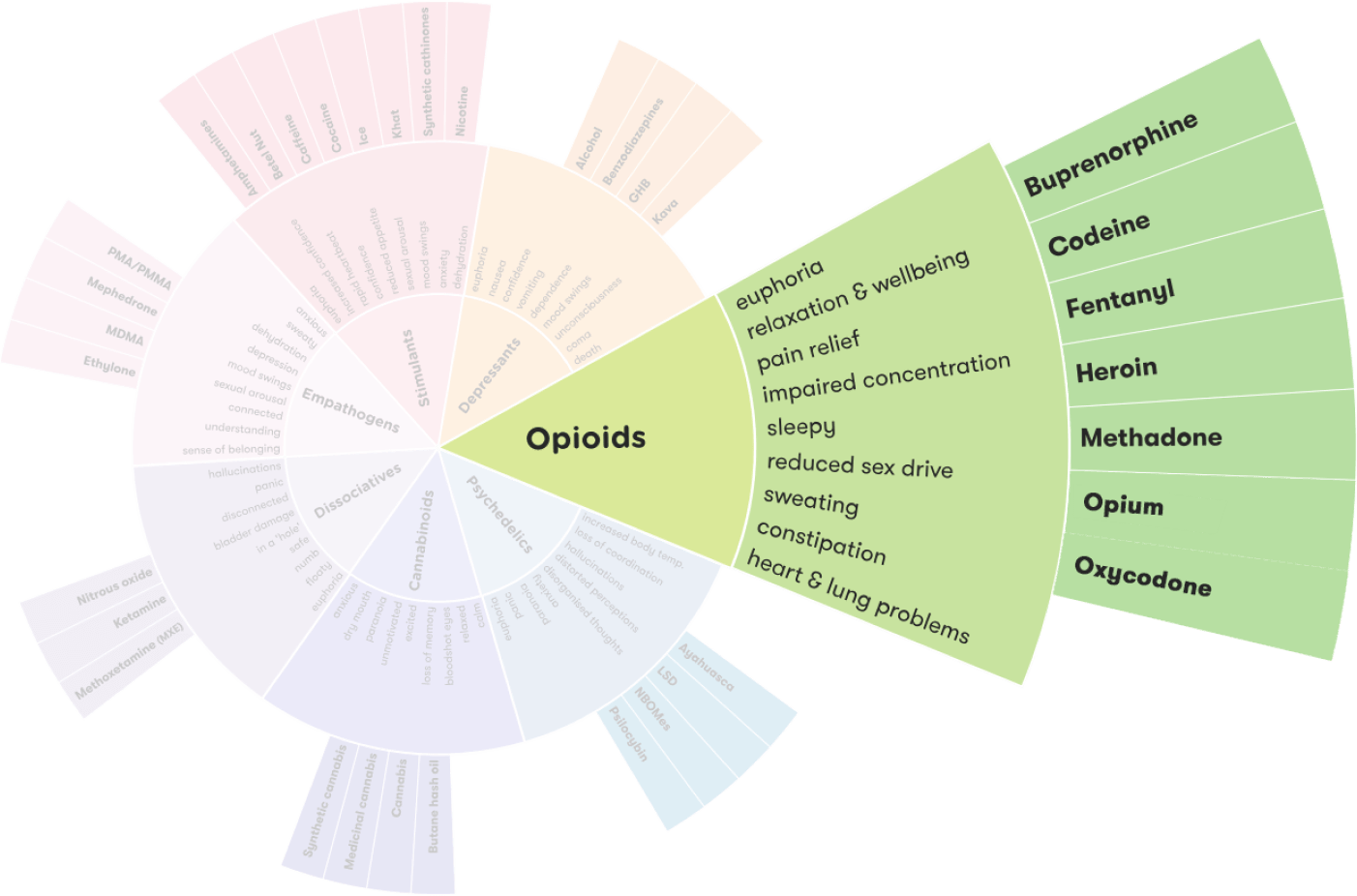If you are struggling with your relationship with opioids or opioid dependence, you’re not alone. More than 100,000 Australians are estimated to be dependent on opioids.1,2
You are not alone
Around 2,600,000 Australians are dependent on drugs or alcohol.3
It's estimated that around 100,000 people are dependent on opioids in Australia.1,2
Over 130,000 people in Australia sought help for alcohol and other drug use.4
What is an opioid?
Opioids are a type of medication commonly used to manage pain. They can be derived from natural sources or created synthetically in a lab.5
These drugs are often prescribed for moderate to severe pain relief, such as after surgery or for chronic conditions. However, opioids also have the potential for side effects and can be addictive if not used carefully under medical supervision.5
Common opioids include medications like morphine, codeine, and oxycodone. However, you may have heard opioids called by their street names such as smack, gear, oxy, O, subs, bupe and orange.6
*Note: this is a sample only and is not the full list of all opioids, and has been adapted from Alcohol and Drug Foundation

What is opioid dependence?
A sign of drug dependence is experiencing withdrawal when you try to sleep.
No one plans to become dependent on a drug, but opioids are associated with a high risk of dependence. Like other conditions, opioid dependence has specific symptoms and a pattern of progression, where it tends to get worse over time.7